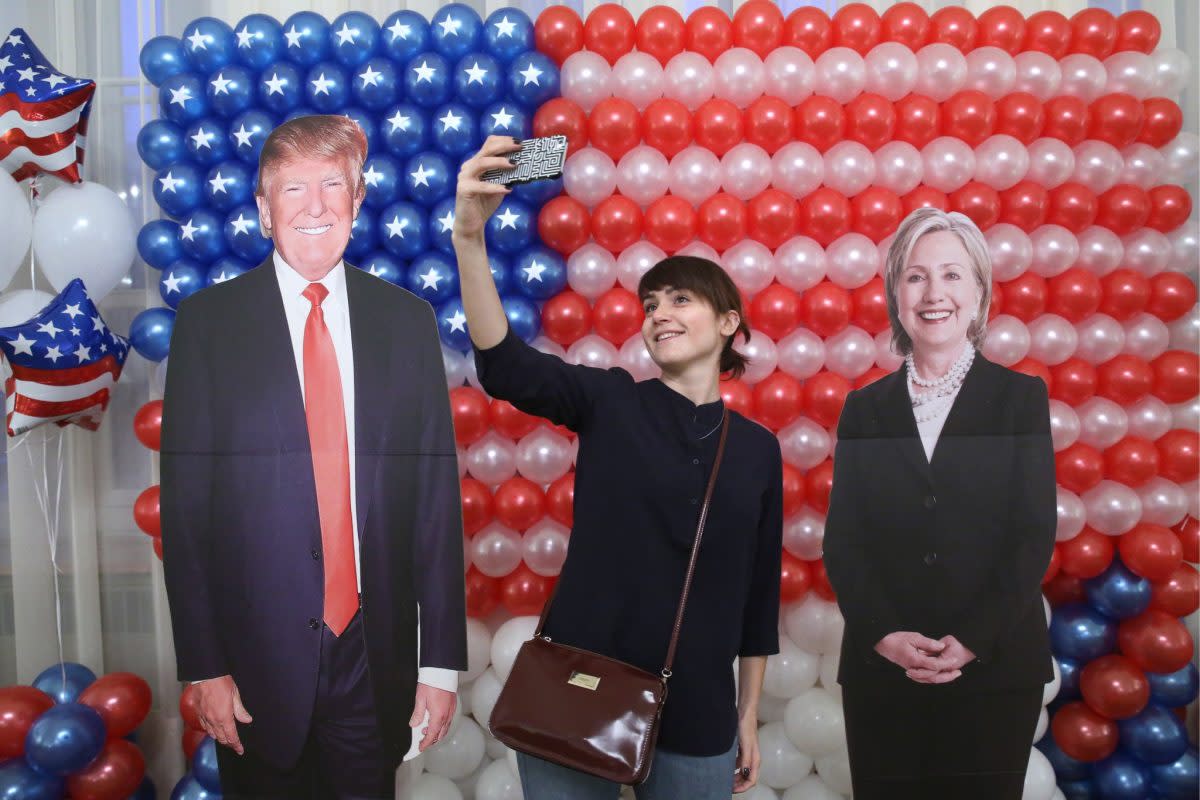Politics emerging as new form of entertainment, political campaigner says

Election campaigns — and results — can sometimes read like fiery, cutting primetime dramas these days, with the U.S. presidential election and the Brexit vote becoming the poster children for the unexpected plot twist.
For John Laschinger, a Toronto-based political campaigner, those two campaigns prove that current political discourse allows — and even encourages — scathingly divisive tactics, all in a bid to engage with today’s more entertainment-centred masses.
“This is a new kind of celebrity reality show that we now come to expect,” Laschinger told Yahoo Canada News.
“It’s the level, the tone, and the disrespect we’ve seen from candidates and their supporters that lowers the bar on running a credible campaign.”
Laschinger has worked on campaigns for notable Canadian politicians for decades, including federal PC cabinet minister John Crosbie, who served under prime ministers Joe Clark and Brian Mulroney, and Olivia Chow, for whom Laschinger served as campaign director on her unsuccessful 2014 run for Toronto mayor.
He recently published a book, Campaign Confessions: Tales from the War Rooms of Politics, that studies campaign tactics.
Laschinger said that online outlets like social media are a place for the masses to easily engage with politics. And though it can be useful, it can also be dangerous, he said, because of the premium it puts on entertainment value. People can now find amusement from elections by following candidates’ unabashed and blatant personal takes on their Twitter accounts.
It’s a new trend, he said, that has made recent politics bounce from one side of the spectrum to another. Prime Minister Justin Trudeau’s Liberal sweep, for example, occurred after a long Conservative reign by Stephen Harper.
Trudeau’s platform, Laschinger said, centred around a large campaign based on a dramatic divergence from the existing style of Canadian politics. With this in mind, Laschinger said, the U.S. election results that many still find hard to believe, are rather easy to dissect.
“You look at these numbers from November and think, ‘How could all these people on the left wing go all the way across the spectrum?'” he said.
“People want to make a choice.”
He said that Hillary Clinton ran as a status quo candidate and didn’t offer any real change from Obama’s administration.
“The only person offering real change was Donald Trump, and in the end, the left-wing voters who crossed over to the right weren’t that frightened by his tactics,” Laschinger said.
“Flip voters know that their lives are not going to change drastically, but they feed off the ideas and drama that drastic change promises.”
The left- to right-wing voter, he said is assured by the checks and balances of government, where institutional bodies like the U.S. Congress strive for smooth and carefully studied changes from one administration to another.
Laschinger said that this new “live” reality show that unendingly unfolds online has turned into an emerging norm for politics.
Drama has always caught the eye, he said, and politicians have caught on.


